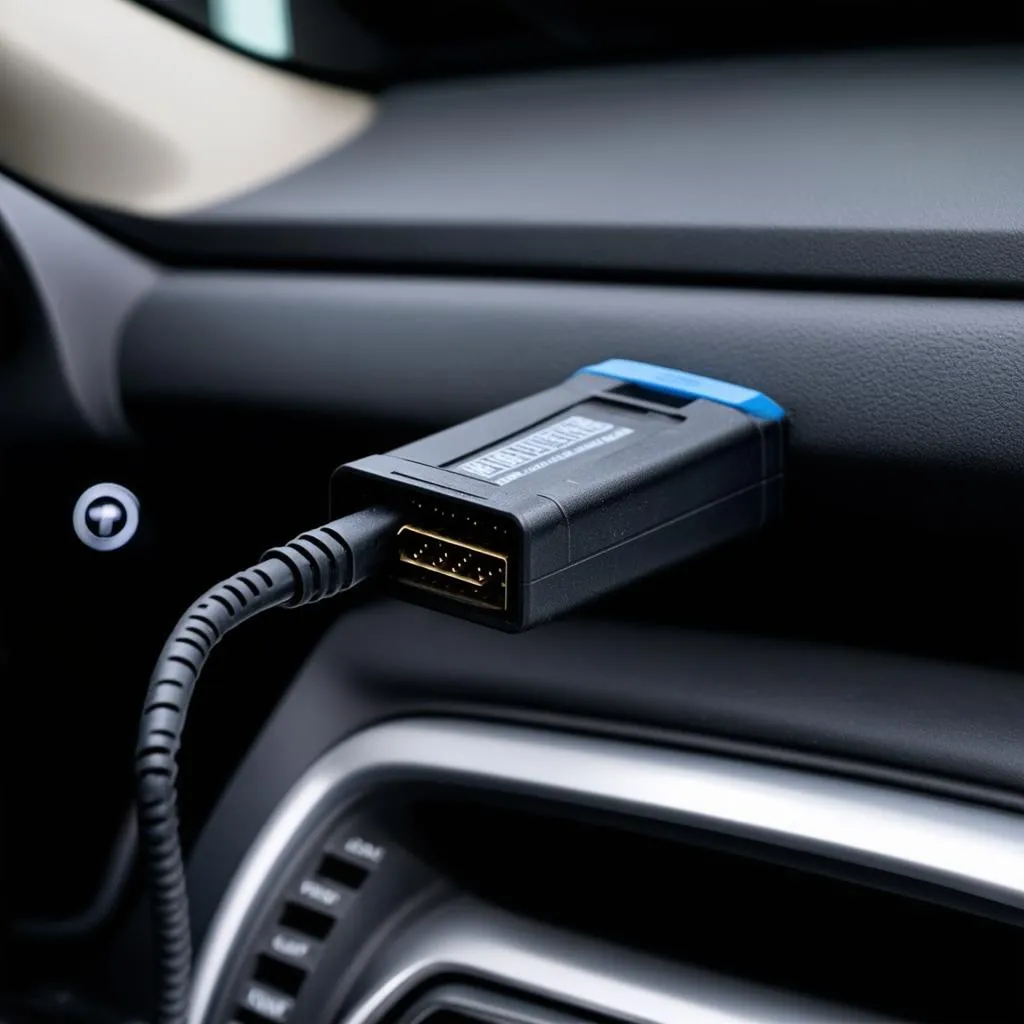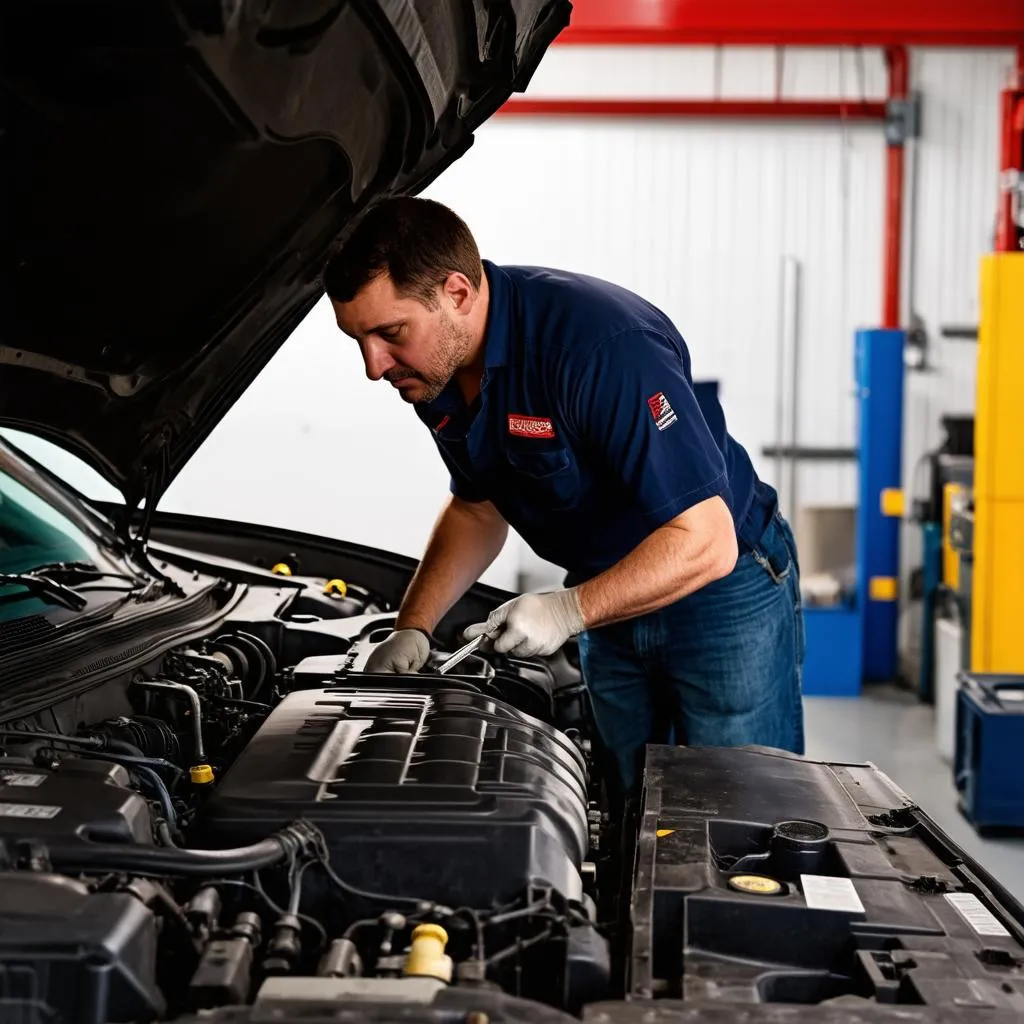Imagine this: you’re cruising down the highway, your favorite playlist serenading you, when suddenly, a yellow light on your dashboard throws a wrench into your zen. That, my friend, is the dreaded “check engine” light, and it often means your car is trying to communicate something through the OBD port.
“OBD? What in the automotive world is that?” you might ask. Well, consider it your car’s very own secret language, and understanding it can save you a lot of headaches (and potentially expensive mechanic bills) down the road.
What is an OBD Signal, Anyway?
OBD stands for On-Board Diagnostics. Think of it as your car’s internal computer system. The Obd Signal is essentially a stream of data that this system generates, providing a snapshot of your engine’s health and performance.
Think of it like your car’s heartbeat. Just as a doctor can diagnose health issues by monitoring your heart rate, mechanics use an OBD scanner to decode these signals, identifying potential problems before they turn into major meltdowns.
Deciphering the Code: Understanding OBD Signals
Now, you’re probably wondering, “How do I read these signals? Do I need a PhD in car mechanics?” Fear not! While the system might seem complex, it’s actually quite logical.
OBD signals are transmitted as diagnostic trouble codes or DTCs. These codes, typically a combination of letters and numbers, correspond to specific issues within your car’s systems.
For instance, the code “P0420” indicates a problem with the catalytic converter system, while “P0301” points to a misfire in cylinder 1.
Why are OBD Signals Important?
Beyond saving you from an unexpected breakdown, OBD signals offer several benefits:
- Early Detection: They act like early warning systems, alerting you to minor issues before they snowball into costly repairs.
- Improved Performance: By identifying and addressing issues, you can enhance your car’s fuel efficiency and overall performance.
- DIY Diagnostics: With a basic understanding of OBD codes, you can often diagnose simple problems yourself, saving time and money.
 OBD Scanner
OBD Scanner
Common Questions About OBD Signals
Q: Do all cars have OBD ports?
A: Most cars manufactured after 1996 are equipped with OBD-II ports, a standardized system that makes diagnostics much smoother.
Q: Can I check OBD signals myself?
A: Absolutely! Affordable OBD scanners are readily available online and at auto parts stores, allowing you to read and interpret codes.
Q: What should I do if my check engine light comes on?
A: Don’t panic! First, use an OBD scanner to retrieve the code. You can then research the code online or consult a mechanic to determine the best course of action.
The OBD Signal and Feng Shui: A Surprisingly Harmonious Connection
Now, you might be surprised to hear this, but the concept of OBD signals aligns surprisingly well with the principles of Feng Shui.
Feng Shui emphasizes balance and harmony within an environment. Similarly, OBD signals help maintain a balanced flow of energy within your car’s systems, ensuring everything operates in harmony. Just as cluttered spaces can disrupt energy flow in your home, neglected car issues can disrupt the performance and longevity of your vehicle.
 Car Engine Repair
Car Engine Repair
OBD Signals: Your Gateway to Automotive Peace of Mind
Ultimately, understanding OBD signals empowers you as a car owner. It provides you with the knowledge to address minor issues proactively and make informed decisions about your car’s maintenance.
Remember, your car is trying to communicate with you through these signals. Listening to what it has to say can not only save you money and stress but also ensure a smoother, safer, and more enjoyable driving experience.
Need Help Deciphering Your Car’s Language?
Contact us on WhatsApp at +84767531508 for expert assistance with all your diagnostic tool needs. Our team of automotive specialists is available 24/7 to help you understand and address any issues your OBD system might be flagging.
Looking for more helpful car care tips and tricks?
Check out these related articles on techcarusa.com:
- 2017 F-250 OBD Port No Signal
- Chevy Cavalier OBD-II Emissions Codes
- 2004 Ford Focus OBD Codes
- 2017 Rogue OBD Port Location
We’re here to help you keep your car running smoothly and safely for miles to come.
